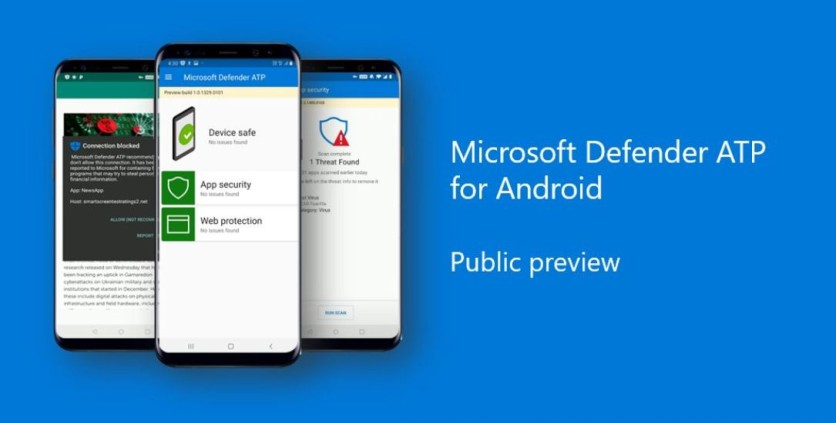Microsoft has released the first version of Defender Advanced Threat Protection (ATP) antivirus for all android devices. The public preview of the antivirus software has also been released from Linux and is currently available for all Linux users.
Also Read: Microsoft President Puts Greater Pressure on Apple Amid an Antitrust Investigation

Also Read: [BREAKING] Microsoft Bans Face-Recognition Service to Police Because of False Matches Leading to Unjust Arrests
According to ZDNet's latest report, Microsoft users can now install the first version of its commercial antivirus product, Defender ATP on their Android devices starting Monday, June 23. The company's product, named as "Microsoft Defender ATP for Android," has reached its first public preview on June 23 after it was announced at the RSA security conference in February 2020.
A new option in their dashboard where they can enable the feature and deploy an Android app to employees' devices, can now be accessed by companies that have contracted Microsoft Defender ATP protection. Microsoft's new Android app can scan devices for malware and other malicious apps, identify phishing and malicious sites while the user is browsing the web just like a classic mobile antivirus product.
Based on a predefined block-list, the new software can block users from accessing certain sites. Microsoft said on its website, hidden features are also included in Defender ATP for Android app courtesy of its integration into a more complex and larger Defender ATP, Configuration Manager platforms, and Intune.
Defender ATP creates a secure experience
According to Microsoft's latest report, the app prevents users from accessing corporate apps by allowing IT staff to lock Android smartphones out of the corporate network, working as a gatekeeper for a company's network.

"When Microsoft Defender ATP for Android finds that a device has malicious apps installed, it will classify the device as 'high risk' and will flag it in the Microsoft Defender Security Center," said Kanishka Srivastava, senior program manager at Microsoft.
Devices that have been added to the "high risk" list from accessing company resources, such as OneDribe accounts as well as its Outlook server, can now be blocked by the company's security staff using sets of predefined rules, as confirmed by Srivastava. The company expects that compromised Android devices, which can potentially serve as entry points into larger corporate data repositories, can be prevented by the new feature.
Compromised Android devices can allow hackers to steal even more data than what's initially available to them on the device. The new antivirus can log and send back any detections of suspicious events to each user's Microsoft Defender Security Center.
Also Read: [HACKERS] Microsoft Identifies Cyberattackers Linked to Iran, Cracking Cloud Password to Gain Full Control Over a Network
ⓒ 2026 TECHTIMES.com All rights reserved. Do not reproduce without permission.




